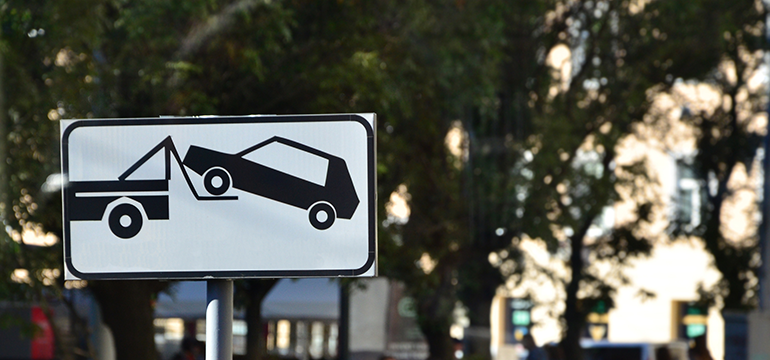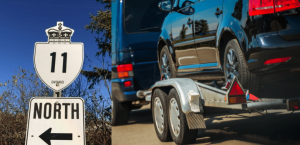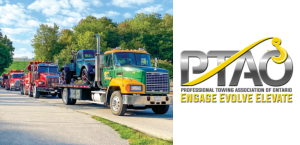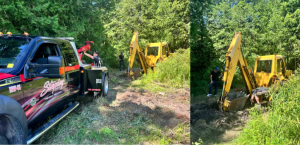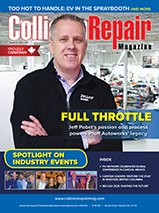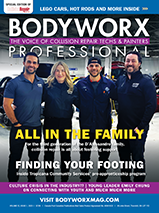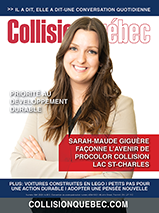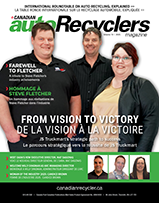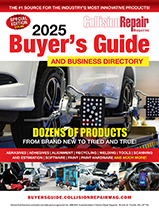EAGLE TOWING SHAKES UP THE INDUSTRY
 Much like any industry, tow truck drivers often face backlash for their line of work.
Much like any industry, tow truck drivers often face backlash for their line of work.
From a distrust of the system to an accusatory approach that some take towards the person who just rescued their car off the side of the road, people in the towing industry don’t have it easy. But companies like Eagle Towing are working to make things better. Jack Poladian, operations manager at Eagle Towing combats misconceptions created by “a few bad apples” by holding himself and his staff to a higher standard from what they know.
“Many people have misconceptions about the towing industry due to a few bad apples that are ruining things for the good ones,” Jack Poladian, Operations Manager at Eagle Towing told Collision Repair. “But we hold ourselves to a higher standard from what we know.”
Poladian and his family’s history in the industry represents a side of towing that many choose not to see. Launching in 1978, Eagle Towing – a tow truck distributing company – housed only one truck and one gas station.
Now in 2019, the company operates out of 15,000 sq. ft. facility, keeping their growing crowd of customers happy and drivers safe on the roads. It is the Poladian’s passion for their work that keeps them afloat.
“It all comes back to true dedication. My family has put their heart, soul, and every waking minute into this company.” Poladian said.
“Eagle Towing isn’t treated as a business, it’s treated as a lifeline and every moment Simon and Victor [co-owners] are thinking about their next move and how to support their customers.”
Not only is Eagle Towing changing the way people see tow truck operators as business professionals, but as emergency services. Poladian reminded Collision Repair that civilians must pull over when they see a tow truck operator heading towards a wreck, considering the high-risk of car crash victims waiting on the side of the road for help. “At the end of the day, everyone has a family and people risk their lives to help others in a jam,” said Poladian. “There’s nowhere in the rule books that says “you have to operate a tow truck,” these guys choose to come out and help no matter rain, sleet, hail, snow, or cars on fire. We are on-site doing whatever they can to help. “
When it comes to Eagle Towing’s future as a business and as a key asset to the industry in Ontario, Poladian says Eagle Towing is only going up.
CAA CALLS ON ONTARIO
 To commemorate the province’s fourth annual Tow Safety Week, CAA South Central Ontario (CAA SCO) issued a call for the Ontario government to prioritize towing industry regulations. CAA SCO issued an online statement calling for provincial regulations in the towing industry.
To commemorate the province’s fourth annual Tow Safety Week, CAA South Central Ontario (CAA SCO) issued a call for the Ontario government to prioritize towing industry regulations. CAA SCO issued an online statement calling for provincial regulations in the towing industry.
The company calls the towing industry “problematic” due to long wait times, impolite interactions between towing operators and clients, and high towing bills. CAA SCO maintains that provincial regulation remains an essential step in protecting the province’s drivers. It hopes the regulations would ensure Ontario’s motorists have certainty when it comes to towing services, regardless of when or where the province’s drivers require support.
The company’s call-to-action echoes London, Ontario’s decision to craft a bylaw regulating the local tow truck industry, specifically “chaser” tow trucks.
CAA SCO also recognizes that new regulations would likely improve any strained relationships between consumers and tow truck operators. The company said it hopes regulations will help the public gain “respect for the men and women who work hard to provide an important service on our roads.”
TOW-RONTO
 In early October Toronto launched a sixweek towing blitz in the city’s downtown core, targeting vehicles that are illegally blocking lanes during rush hours.
In early October Toronto launched a sixweek towing blitz in the city’s downtown core, targeting vehicles that are illegally blocking lanes during rush hours.
On October 4, Toronto mayor John Tory announced that the city will be launching a towing pilot project to remove illegally parked vehicles from Queen Street. The project began October 7 and was scheduled to continue for six-to-eight weeks.
During those weeks, Toronto tow trucks will patrol a 13-kilometre stretch, removing illegally parked vehicles between the Fallingbrook Road and Queen Street East intersection all the way through Roncesvalles Avenue and Queen Street West.
The city has dedicated about $80,000 in funds the for the pilot project. Similar towing endeavours have launched in the past, but Tory has maintained that this project is different, as vehicles will be towed to spots on nearby sidestreets rather than an impound lot. That way, tow trucks will have can get back onto Queen Street to continue towing in a more timely matter.
If someone suspects their vehicle has been towed, they are advised to call the Toronto police non-emergency line, where they will be told the location of their vehicle. While the towing fee will be waived for Toronto’s offenders, drivers will be issued a $150 no-stopping ticket.
“I think everybody in the city has felt the frustration of sitting behind a vehicle with its flashers on,” said Tory. “Traffic congestion that is caused by illegally parked vehicles is dangerous and frustrating.” In 2018, officials said that nearly 11,000 no-stopping tickets were issued on Queen Street during rush hours, forcing 2,400 vehicles to be towed.
Tory said the city is targeting Queen Street based on its public transit accessibility; illegally parked cars and trucks have been hindering public transit vehicles, delaying them from completing scheduled routes in a timely manner.
The city has also installed Bluetooth monitoring software on the street to measure traffic flow and determine the project’s overall effeciency. If successful, the project could become a permanent practice.
MAINTENANCE MERGER
 Two Alberta businesses—a towing company and a landscape maintenance company—announced a merger in mid-October, forming one of Canada’s largest municipal external service providers.
Two Alberta businesses—a towing company and a landscape maintenance company—announced a merger in mid-October, forming one of Canada’s largest municipal external service providers.
The merger is between City Wide Towing and Recovery Service, a Calgary, Alta.-based towing service, and ULS Maintenance and Landscaping in Rocky View, Alta. ULS provides snow and ice management, garbage collection, landscape maintenance and other related services to municipal and commercial clients across Western Canada.
Signal Hill Equity Partners provided growth capital for the transaction. According to the companies, the new partnership will form a market leader in exterior services, with more than 500 employees and five operational hubs in Alberta and Saskatchewan.
The new company will serve more than 30 towns, cities and municipalities. The two companies said the transaction creates Western Canada’s largest diversified municipal external services company. “We are looking forward to working with ULS,” said Eytan Broder, CEO of City Wide Towing. “By partnering with Western Canada’s largest landscape maintenance and snow removal company, we are executing on our strategy of building a diversified national municipal and commercial services provider.”
City Wide Towing has provided towing and recovery services across Alberta since 1963. Its services include towing, equipment transportation, boosting, lockouts, fuel delivery, tire changes and other specialty services in the surrounding areas. According to the company, it operates the largest towing and recovery fleet in Western Canada, providing services to various auto clubs, insurance companies, equipment rental companies, auto dealerships and municipalities.
Established in 1989, ULS has provided year-round services in landscape design, construction, maintenance, and snow and ice management to clients in Alberta and Saskatchewan.

